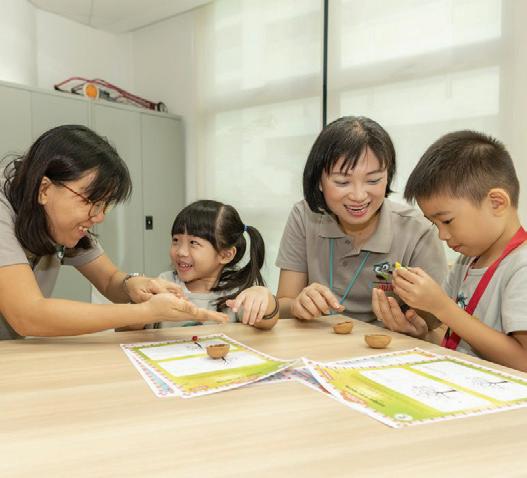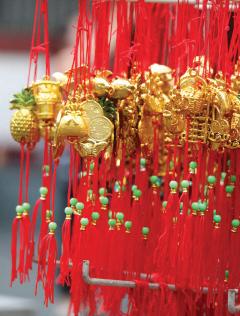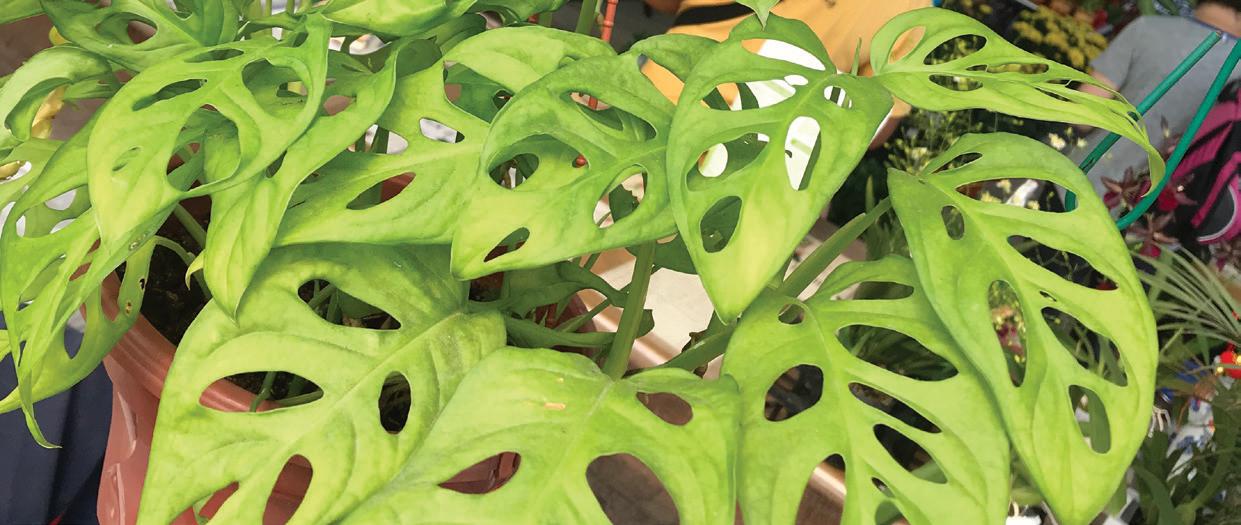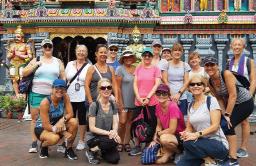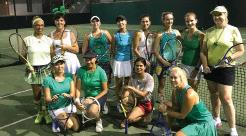
4 minute read
Writers' Block
Writers' Block
a monthly contribution from our AWA Writers Group members.
Advertisement
Singapore Writers' Festival Magic
Though wilted after a sleepless red-eye home from Delhi, I was pulled to the Singapore Writers’ Festival (SWF) with its magic of literary presentations, discussions, book browsing, snatched encounters with friends, and the promise of new rapports. The extravaganza began for me on a Saturday morning at the Arts House. An imposing cream and white structure by the Singapore River, the Arts House is one of a cluster of colonial buildings across which the annual ten-day writers’ festival spreads. Getting out of a taxi, I spotted the familiar white balloons with the logo—S W F in outsize pink letters— tethered to the front gate. Beyond them a stage had been erected under a white canopy, with colorful beanbags strewn in front of it. I welcomed the cool of the Arts House interior on a muggy day. Upstairs I took my seat in the Chamber, a stately, high-ceilinged room with shiny wooden floors where Singapore’s parliament used to meet for forty years, from 1959 to 1999. Pico Iyer and Meira Chand, who have much in common besides being writers—India, Britain and Japan feature in both their identities—talked about home and belonging. I could finally relax, having reached my destination. Lulled by the speakers’ genteel voices and the cool darkness of the room, I felt my head loll for a moment—but the austere leather and wooden seats of the Chamber (custommade in London in 1954) don’t allow for sleep. Later in the National Gallery and then at the Asian Civilisations Museum, I listened to Linda Collins speak on two different panels. She discussed language and trauma in one, and the use of metaphor in making meaning in the other, both with reference to Loss Adjustment (Ethos Books, 2019), her wrenching memoir about her only child’s death by suicide. In death Collins’ daughter Victoria spoke in her own voice with poetic eloquence through her journal entries that feature in the book. I was moved by Collins’ regarding Victoria as her co-author. The SWF theme was fittingly “A language of one’s own.” Language is a powerful element of identity, both individual and communal. Long interested in colonialism and culture, I went to a session on “ ”
Written by Mandakini Arora
language and the colony. Melanie MununggurrWilliams and Waubgeshig Rice, an Australian and Canadian respectively, shared their literary endeavors to keep alive languages and stories that had been threatened by European colonialism. In conversation with them, Farish Noor, the Singapore academic, reminded us that the erasure of languages also meant an uprooting of knowledges to which the languages were organic. Outside afterward, I chatted with a woman who had attended the same session and, in that moment, the seed of a new circle of writing and friendships was planted. Late evening, I had enough of a break to both visit the popup bookstore and fuss over my buys. I welcomed chance meetings in the store, particularly one with a poet-friend who is my neighbor at home and of whom I see more in the ten days of SWF than in the whole rest of the year. I bought books by Min Jin Lee and Roxane Gay, two of the festival’s star draws, and found a beanbag to settle into under the white canopy. After thirty-six hours of no sleep, I felt like every part of my body ached. But I was determined to stay until the last session—on getting published in Asia—that I had earmarked for the day. A young man appeared with a survey form. He gasped, making a swatting gesture at my “Fiftyseven” in response to his “How old are you?” I was indignant. “So sorry, so sorry!” He practically bowed. “There was an insect on my arm.” Feedback done, I was lulled to sleep by the thrum of an overhead fan and the soft beanbag. And then music like nothing I’d heard before struck up. On the stage, men and a woman in red sarongs sang in a mix of languages, their voices powerful and stirring against the familiar sounds of electric guitar and drums mingled with the twang of unfamiliar stringed instruments. The music of the Borneo band Nading Rhapsody evoked old histories and indigenous languages that survived the violence of colonial encounters. This is how Bilbo Baggins the Hobbit must have felt, I thought. His indignation—bewilderment and bewutherment—at the dwarves overrunning his house and serving tea and eating his food vanished when they started to sing. The music made him think of beautiful and valorous things. My aches dissolved. I was wide-awake.
The AWA Writers’ Group meets the 2nd and 4th Thursday to discuss their work. For more information, send an email to writers@awasingapore.org

